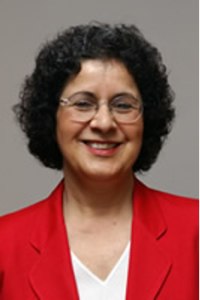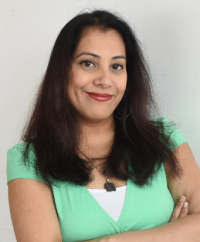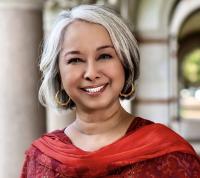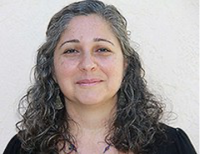MUSLIM WOMEN AND THE MEDIA TRAINING INSTITUTE
April 9th, 2021
University of California, Davis
Trainers 2021

Dr. Suad Joseph
Distinguished Research Professor of Anthropology and Gender, Sexuality, and Women’s Studies
University of California Davis
Suad Joseph is Distinguished Research Professor of Anthropology and Gender, Sexuality, and Women's Studies. Her research has focused on her native Lebanon, on the politicization of religion, on women in local communities, on women, family and state, and on questions of self, citizenship, and rights. Her current research is a long-term longitudinal study on how children in a village of Lebanon learn their notions of rights, responsibilities and citizenship in the aftermath of the Civil War and on their transnational families who have moved to the United States and Canada. She is Founding Director of the Middle East/South Asia Studies Program, UC Davis. She is founder and director of the Arab Families Working Group (AFWG), a group of 16 scholars undertaking comparative, interdisciplinary research on Arab families in Palestine, Lebanon, Egypt and the United States. She is founder of the Association for Middle East Women's Studies (AMEWS) and co-founder of AMEW's Journal of Middle East Women's Studies (JMEWS) published by Duke University Press. She is also founder and facilitator (since 2001) of the American University of Beirut, the American University in Cairo, the Lebanese American University, the University of California and Birzeit University Consortium, and American University of Sharjah (UCDAR). She served as the President of the Middle East Studies Association of North America, 2010-2011. She is Founding and General Editor of the Encyclopedia of Women and Islamic Cultures. Her edited books include: Arab Family Studies: Critical Reviews (Syracuse, 2018); Women and Islamic Cultures: Disciplinary Paradigms and Approaches (Bril, 2013l); Gender and Citizenship in the Middle East (Syracuse, 2000), and Intimate Selving in Arab Families (Syracuse, 1999). Her co-edited books include: Building Citizenship in Lebanon (Lebanese American University, 1999); Women and Citizenship in Lebanon (1999) and Women and Power in the Middle East (University of Pennsylvania Press, 2001); and Muslim-Christian Conflicts: Economic, Political, and Social Origins (Westview, 1978). She has published over 100 articles, and won many awards and prizes including the UC Davis Undergraduate Teaching and Research Award (2014, $45,000) and the Middle East Studies Association Jere L. Bachrach Life Time Service Award.

Dr. Nurhaizatul Jamil
Assistant Professor in Global South Studies |
Pratt Institute
Nurhaizatul Jamil is an Assistant Professor in Global South Studies, and the co-director of the Social Media Lab at Pratt Institute. She received her PhD in Cultural Anthropology from Northwestern University. Her current book project focuses on Singaporean Muslim women's participation in Islamic classes that emphasize self-transformation. Her next research project examines the entanglements between modest fashion and sustainability within Muslim communities. At Pratt, she teaches classes on women in Muslim worlds, MENA communities and cultures, decolonizing methodologies, and fashion and sustainability studies. She also co-coordinates the Social Media Lab at Pratt. Dr. Jamil has received fellowships from the following granting agencies: Wenner Gren Foundation, Spencer Foundation/National Academy of Education (Dissertation completion), Social Science Research Council (SSRC, declined). Her articles have been published in various peer-reviewed journals such as the Asian Studies Review, Journal of the Royal Anthropological Institute, International Journal of Communication.

Dr. Shaheen Pasha
Assistant Teaching Professor,
Penn State University
Shaheen Pasha is an assistant teaching professor at Penn State University, focused on mass incarceration and prison education. Prior to joining Penn State, Shaheen was an assistant professor at the University of Massachusetts, Amherst, where she launched a successful, immersive explanatory journalism class at the Hampshire County Jail, bringing incarcerated students and journalism students at UMass together. She was a recipient of the 2019 SAJA Excellence in Journalism Award for Nonfiction Writing (About South Asia or South Asian Diaspora). Shaheen was awarded the Knight Nieman Visiting Fellowship to expand her work, teaching journalism behind bars. She is also the recipient of a Fulbright Specialist designation to advise in journalism curriculum internationally.
In addition, Shaheen is a veteran journalist with 20 years of experience in the field. She worked as an international correspondent, covering legal issues and Islamic finance for Thomson Reuters in Dubai. She was also a staff writer for CNNMoney in New York, where she covered legal issues, the Enron trial and the Supreme Court. She started her career at Dow Jones Newswires where she had a daily column in the Wall Street Journal and appeared as a correspondent for CNBC Asia, covering international stock action. She continues to write for publications such as Dallas Morning News, Narratively and Bloomberg Law. Her essay, “The Color of Being Muslim,” was published in the Seal Press anthology Burn It Down: Women Writing About Anger. Her chapter “American Apocalypse: Portrayals of Islam and Judaism in the Post-9/11 Electronic Church,” was published in Praeger’s The Electronic Church in the Digital Age: Cultural Impacts of Evangelical Mass Media. She is also the co-editor of the anthology, Mirror on the Veil: A Collection of Personal Essays on Hijab and Veiling and co-author of the recent report #Islamophobia: Stoking Fear and Prejudice in the 2018 Midterms, published by the Social Science Research Council.

Dr. Elora Shehabuddin
Associate Professor of Humanities and Political Science
Rice University
Elora Shehabuddin is an Associate Professor of Humanities and Political Science at Rice University. She received her A.B. in Social Studies from Harvard University and Ph.D. in Politics from Princeton University. She was Assistant Professor of Women's Studies and Political Science at the University of California, Irvine, before moving to Rice. Professor Shehabuddin is the author of two books, Reshaping the Holy: Democracy, Development, and Muslim Women in Bangladesh (Columbia University Press, 2008) and Empowering Rural Women: The Impact of Grameen Bank in Bangladesh (Grameen Bank, 1992). She has published articles in Modern Asian Studies, Signs: Journal of Women in Culture and Society, Journal of Women's History, Südasien-Chronik [South Asia Chronicle], Journal of Bangladesh Studies, and Asian Survey, as well as chapters in numerous edited volumes. She is an Associate Editor of the Encyclopedia of Women and Islamic Cultures (Brill) and a guest co-editor of a special issue of Feminist Economics on "Gender and Economics in Muslim Communities." Her current book project is a history of Muslim women, feminism, and global politics. Professor Shehabuddin has received many fellowships, including from the National Endowment for the Humanities, Woodrow Wilson Foundation, the American Association of University Women, the Social Science Research Council, the Andrew W. Mellon Foundation, and the U.S. Institute of Peace. She has been selected as a Research Associate in the Women's Studies in Religion Program at the Divinity School at Harvard University and as a Carnegie Scholar. Her doctoral dissertation was awarded the American Political Science Association's Aaron Wildavsky Dissertation Award for best dissertation in Religion and Politics. Professor Shehabuddin currently serves on the Advisory Committee of the Women's Studies in Religion Program at Harvard Divinity School and on Final Selection Committee of the Woodrow Wilson Foundation Women's Studies Fellowship.

Dr. Zeina Zaatari
Director of Arab American Cultural Center
University of Illinois at Chicago
Zeina Zaatari is the director of the Arab American Cultural Center at the University of Illinois at Chicago in Chicago, IL. She is currently working on a book project titled: Interrogating Heteronormativity in Lebanon: Family, Citizenship, and Access to Adulthood. Previously, she worked as the Regional Director for the MENA Program at Global Fund for Women (2004-2012) where she managed a diverse grantmaking program to support women’s movements. She earned her PhD in Cultural Anthropology with an emphasis in Feminist Theory from the University of California at Davis, with dissertation fieldwork focusing on women’s groups and activists in South Lebanon. She currently serves as Secretary of the Board of the Association for Women’s Rights in Development and is a core group member of the Arab Families Working Group. Her publications include an edited book Telling Our Stories: Women’s Voices of the Middle East and North Africa (2011), and chapters/articles including “Desirable Masculinity/Femininity and Nostalgia of the “Anti-Modernity”: Bab el-Hara Television Series as a Site of Production” in Sexuality and Culture(2014), “Re-Imagining Family, Gender, and Sexuality: Feminist and LGBT Activism in the context of the 2006 Invasion of Lebanon” co-written with Nadine Naber in Journal Cultural Dynamics: Insurgent Scholarship on Culture, Politics, and Power (2014), “Arab Feminist Awakening: Possibilities and Necessities” in Arab Feminisms: A Critical Perspective (in Arabic 2012, English 2014), “In the Belly of the Beast: Struggling for Non-Violent Belonging” in Arab and Arab American Feminisms (2011), “Women’s Leadership in the MENA,” in Gender and Women’s Leadership (2010), “Production of Knowledge: International Development Agencies” in Encyclopedia of Women and Islamic Cultures(2010), and “The Culture of Motherhood: An Avenue for Women’s Civil Participation” in Journal of Middle East Women’s Studies (2006). Additionally, she has authored several commissioned research publications including: “Unpacking Gender: The Humanitarian Response to the Syrian Refugee Crisis in Jordan” (2014, Women’s Refugee Commission), and “No Democracy Without Women’s Equality: Middle East and North Africa” (2013, Social Science Research Council, Conflict Prevention and Peace Forum).